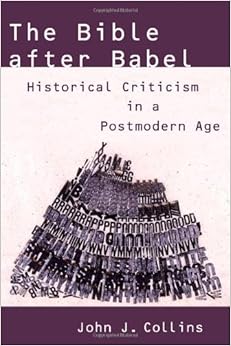
I thought I would share a helpful follow-up citation to the last critique I posted concerning Kitchen’s apologetic approach to biblical historicity. This assessment comes from John J. Collins, the Holmes Professor of Old Testament Criticism & Interpretation at Yale Divinity School. Though Kitchen’s work is popular amongst some fundamentalists, Collin’s criticism of Kitchen is very direct. Concerning Kitchen’s On the Reliability of the Old Testament, Collins writes:
“This is a richly documented collection of data from the ancient Near East that might possibly illustrate or support the historicity of the biblical narratives. But it is ultimately a work of apologetics. The embarrassing archaeological finding of Kathleen Kenyon that Jericho was not occupied in the 13th century when Joshua was supposed to have destroyed it, is explained blithely by appeal to ‘erosion.’
“In the case of Ai, which was also deserted at that time, Kitchen assures us that, while the site that has been excavated ‘does not (yet/) have the requisite archaeological profile’ to support the conquest story, ‘there might well be another site of a similar kind that does, yet to be found.’ One is reminded of the comments of U.S. Vice President Dick Cheney on the search for weapons of mass destruction in Iraq. The historian must work with evidence that is available, not with hypothetical evidence that may (or may not) be found in the future. . .
“His critiques of [minimalists] Lemche, Thompson, and others are not without substance, but his own views are too blatantly apologetic to warrant serious consideration as historiography.”
John J. Collins, The Bible After Babel: Historical Criticism in a Postmodern Age, 34-35.











